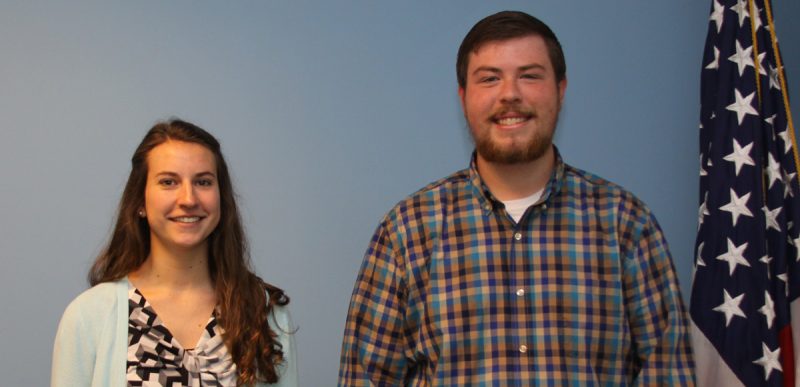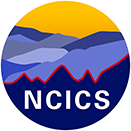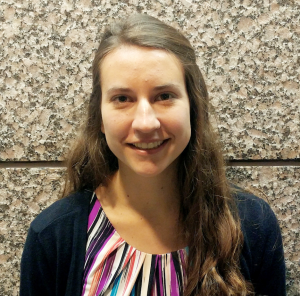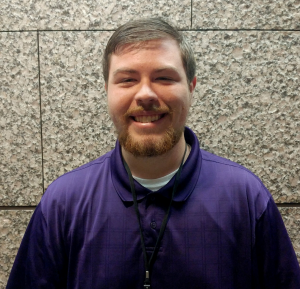
By Andrew Dundas
The NOAA Hollings Scholarship Program offers academic support and a full-time, paid internship at a NOAA facility to undergraduates interested in ocean and atmospheric sciences. Students learn through firsthand experience about research, technology, and education within their fields. This summer, NCICS hosted two Hollings scholars: Rachel Phinney and Chase Graham. Rachel is a Meteorology-Climatology major at the University of Nebraska-Lincoln, where she serves as president of UNL’s student chapter of the American Meteorological Society and as secretary for the Students of Earth and Atmospheric Science club. Chase studies Atmospheric Science at the University of North Carolina-Asheville.
Rachel’s interests lie in how climate change will affect weather on a day-to-day basis. She worked with Jared Rennie of NCICS and Matt Menne of NOAA NCEI to create a visualization tool demonstrating how precipitation extremes have changed and will change in the future. They used the Global Historical Climatology Network-Daily dataset to calculate historic extreme precipitations metrics across the United States then projected these trends to 2100 using downscaled climate model projections based on the localized constructed analogs (LOCA) dataset. The information is then displayed in a way which tells a story to its users.
Rachel feels that her internship with NCICS has aided her by teaching her more technical skills, including programming and the use of Geographic Information Systems (GIS) software. Her mentor Jared, who was also a Hollings scholar during college, believes that the Hollings Scholarship program takes students a couple notches higher when it comes to applying for jobs and graduate studies. Jared noted that the job market is tough and the Hollings scholar program can be just the thing to make these young scholars stand out. Rachel also credits Jared with taking the time to foster networking opportunities.
Chase found participating in real research to be extremely beneficial. As his first experience with scholarly research, Chase said the experience proved to be helpful both in learning the process and identifying whether research is a field he will want to pursue. His project focused on the nature of tropical cyclones in the southeastern United States. Chase used precipitation data from the PERSIANN Climate Data Record dataset and tropical cyclone track information to characterize how tropical cyclones contributed to rainfall in the region from 1998–2012, which was a particularly active period in the Southeast. This is a continuation of work that his mentor, Olivier Prat, has been doing with NCEI’s Brian Nelson in recent years.
Olivier notes that at 10 weeks, the length of the program is relatively short, pressing the students to really work towards their goals, but long enough for the pace to be overwhelming. Olivier added that having this research experience before going to grad school gives the students a skill that they will not need to discover on their own.
Rachel and Chase concluded their time at NCICS and NCEI by presenting the results of their work on July 28, 2017, at NCEI’s headquarters in Asheville, North Carolina.
For more on the 2017 Hollings scholars, see the NCEI web story.


